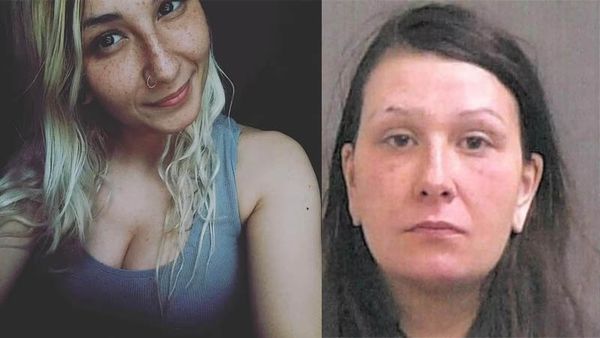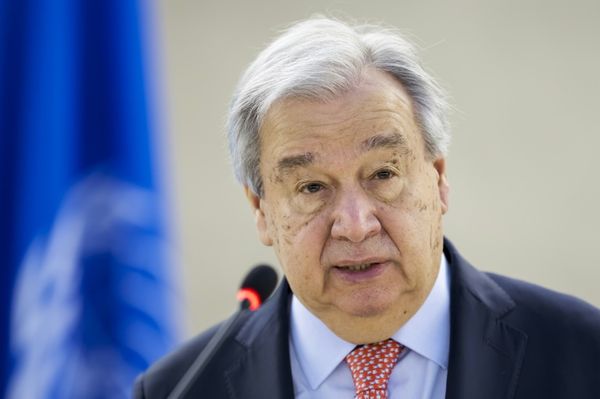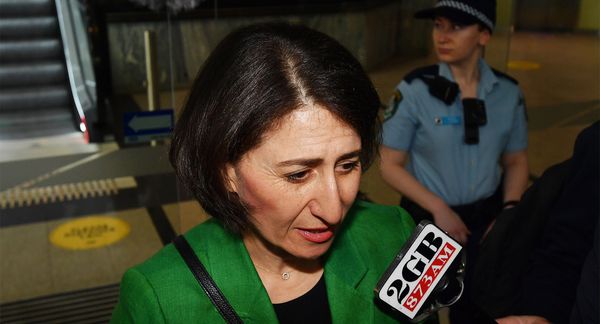
To a packed press conference on Friday 1 October 2021, at the height of her powers and still steering her state through the COVID crisis, then-NSW premier Gladys Berejiklian dropped a bombshell: she was resigning as premier.
My resignation as premier could not occur at a worse time but the timing is completely outside of my control, as the ICAC has chosen to take this action during the most challenging weeks of the most challenging times in the state’s history.
She went on:
I state categorically: I have always acted with the highest level of integrity. History will demonstrate that I have always executed my duties, again, with the highest level of integrity for the benefit of the people of NSW who I have had the privilege to serve.
Flash-forward more than 18 months after a protracted Independent Commission Against Corruption (ICAC) process, and yesterday the former premier, now managing director, enterprise, business and institutional at Optus, released a much shorter statement:
Serving the people of NSW was an honour and privilege. At all times I have worked my hardest in the public interest. Nothing in this report demonstrates otherwise … Thank you to members of the public for their incredible support. This will sustain me always. The report is currently being examined by my legal team.
Which raises the question: is Berejiklian reading the same report we are?
To recap from the ICAC report:
The commission finds that Ms Berejiklian engaged in serious corrupt conduct by breaching public trust in 2016 and 2017 through exercising her official functions in relation to funding promised and/or awarded to [the Australian Clay Target Association in Wagga Wagga], without disclosing her close personal relationship with [ex-state Wagga Wagga MP Daryl] Maguire, when she was in a position of a conflict of interest between her public duty and her private interest, which could objectively have the potential to influence the performance of her public duty. The commission also finds that in the same period, Ms Berejiklian partially exercised her official functions, in connection with funding promised to ACTA, influenced by the existence of her close personal relationship with Mr Maguire.
So how is the public meant to square the dissonance between Berejiklian’s statement and the actual report?
Crikey put that question to the NSW Opposition Leader Mark Speakman, who served as attorney-general under Berejiklian and who belongs to the same moderate Liberal faction.
“Well, everything I saw, as minister, from Gladys, displayed the highest integrity,” Speakman said. “She worked 24/7, everything I saw, she behaved honestly, diligently. And basically, her personal life, such that I knew about it, always came a distant second to her public life and public duty. She was a premier, when I saw her act, who put the public interest first.
“On the other hand, there are now these findings by ICAC of serious corrupt conduct. They are significant findings, and they may well be the subject of factual or legal challenge by her legal team.”
Speakman is basing his assertions on “everything he saw”. The problem, obviously, was that Berejiklian and Maguire operated in secret. Berejiklian, notoriously private, had told very few people about her relationship with Maguire, and that fact was at the heart of one of the scathing findings from ICAC.
The ICAC deemed Berejiklian’s conduct seriously corrupt precisely because she “[exercised] her official functions” in relation to funding pet projects of Maguire’s “without disclosing her close personal relationship” with him. She was also reprimanded for “refusing” to do her duty under an anti-corruption law to notify ICAC of any suspicions about Maguire’s behaviour.
(Again, to recap, Maguire, whose relationship with Berejiklian continued until September 2020, resigned from state Parliament in disgrace in 2018, and was already facing court over charges related to his time in office when he was accused of a long list of corrupt conduct in Thursday’s report).
None of this seems to have shifted Berejiklian’s rosy view of her conduct since she made that defiant resignation speech in October 2021. She consistently denied any wrongdoing during the ICAC’s public hearings, both on the stand and in statements to reporters. The report is public, and readers can judge for themselves.
NSW voters weren’t allowed to know the findings before heading to the polls in March — one of many reasons the severe delay in delivering the report has been so criticised — but the attitudes of Berejiklian, Speakman, former treasurer Matt Kean, and other Liberals may well play on the public’s mind next time there’s an opportunity to vote.
Labor Premier Chris Minns and his reaction to the report will also be under a microscope. He gave a noticeably muted response to the report on Thursday, criticising the delay in delivering it while highlighting it did not “take away from premier Berejiklian’s handling of the COVID emergency, which I still consider excellent”.
“It’s important however for all politicians in NSW, and anyone in public life or in positions of leadership, to understand that we must manage conflicts of interest, and in particular declare them,” Minns said.
It’s now up to Minns to implement the ICAC’s list of 18 recommendations from Thursday’s report.
So where does this leave the public, in regards to understanding the gap between Berejiklian’s view of her conduct and the conclusions reached by the ICAC? Former ICAC insider and prominent integrity advocate Geoffrey Watson SC told Crikey: “I don’t think you can reconcile them. But I would have a look at the independent authority, rather than the person making the assertion.
“She may well have held that genuine belief, but it wasn’t correct.”










